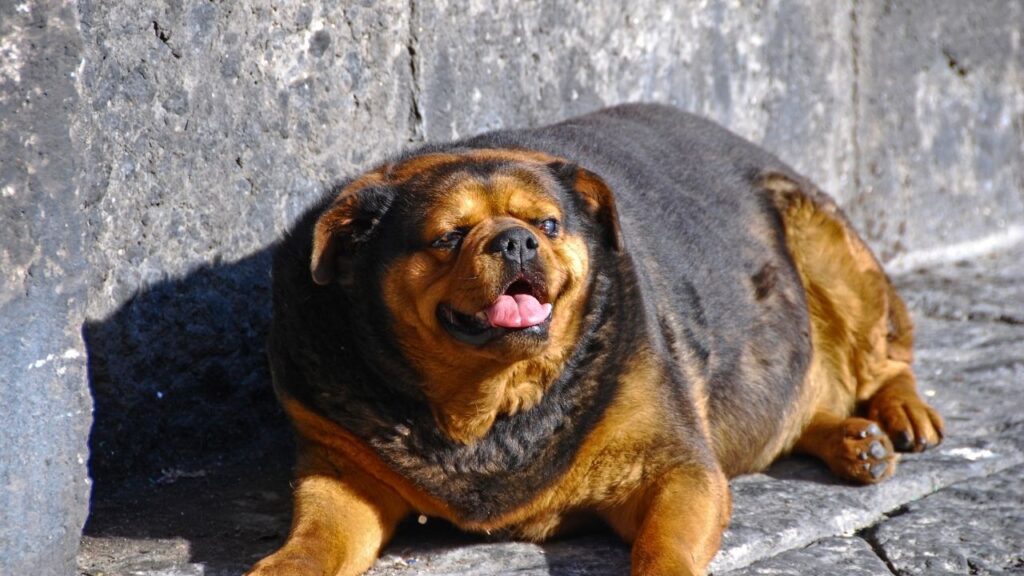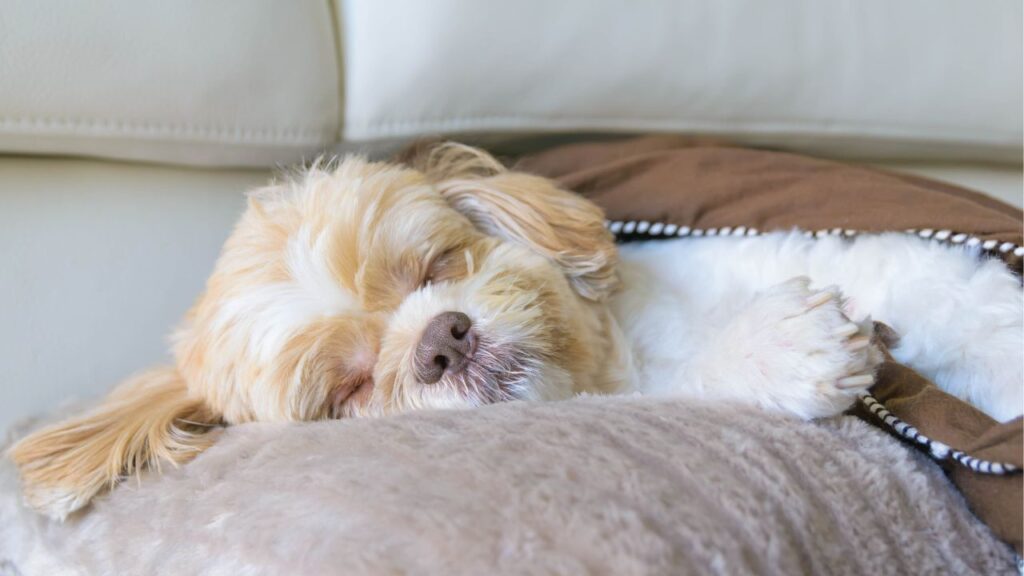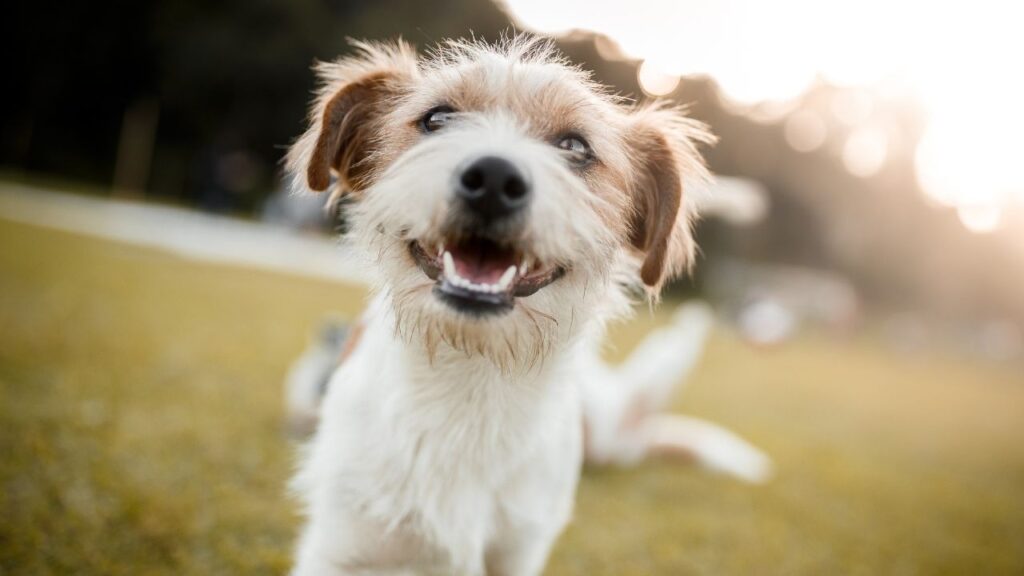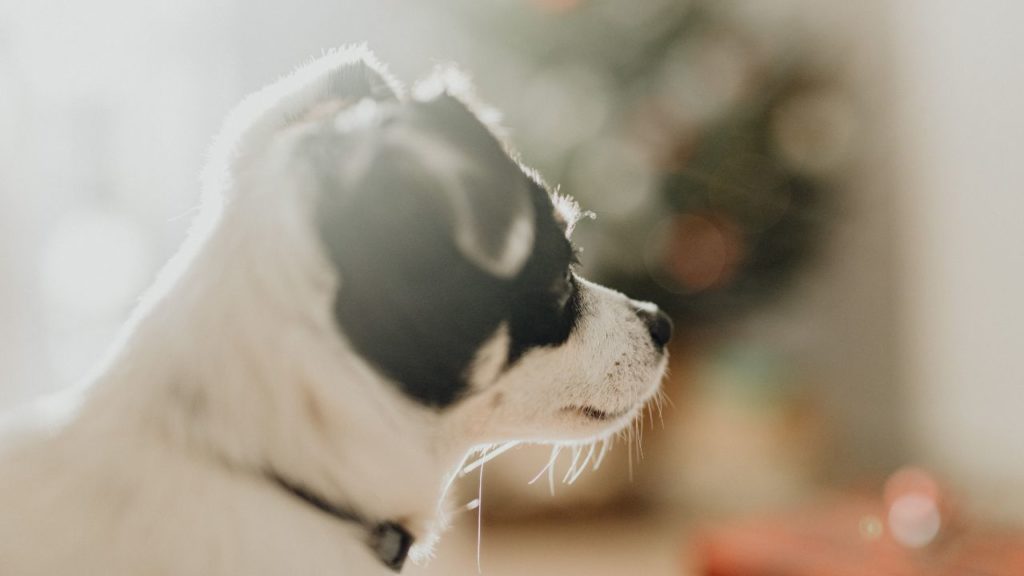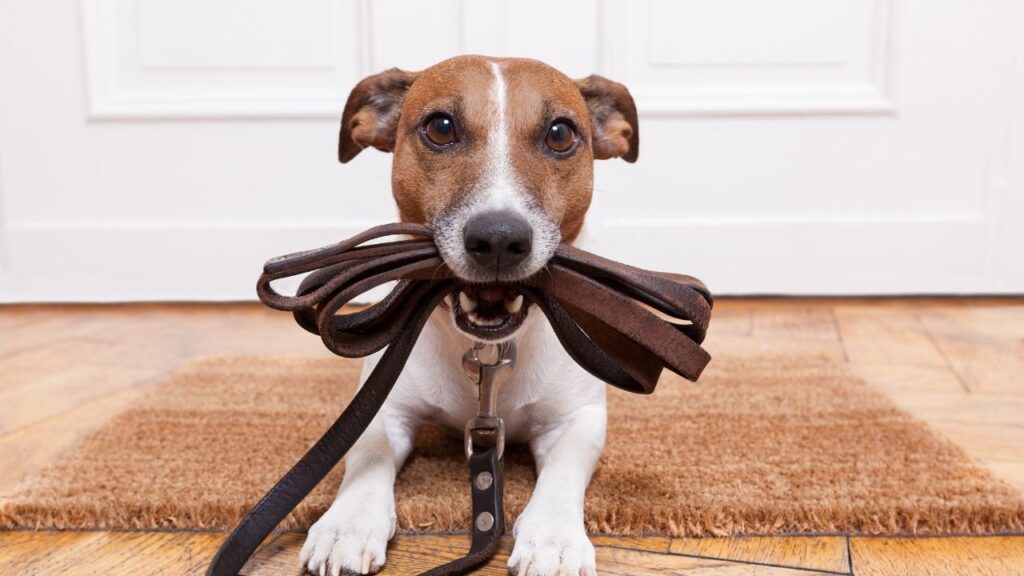Should Dogs Sleep in the Dark?
Letting dogs sleep in the dark provides essential benefits for their health and may even help protect them from getting cancer.
Key Takeaways
- It is OK for dogs to sleep in the dark (in fact, it’s better for their health).
- Your dog likes sleeping in dark places because it allows him to get better sleep with fewer disturbances.
- The best sleeping environment for dogs is dark and quiet.
- Light affects sleep for dogs just like it does for people.
A Good Night’s Sleep
The patterns and daily cycles of our bodies – and your dog’s body – are partially controlled by circadian rhythms. Circadian rhythms are part of a complex system of genes, neurons, and hormones that help regulate behaviors over a 24-hour light and dark period.1 When dogs sleep in the dark, their circadian rhythms improve.
An important part of this hormonal system – melatonin — is produced at night to promote healthy sleep. Deep, restorative sleep in a dark environment for 7 to 8 continuous hours allows the body to produce normal melatonin levels. Lights at night can decrease melatonin levels and disrupt natural deep sleep.
Benefits of Dogs Sleeping in the Dark
There has been much research on sleep in humans, which can also be applied to dogs.
Deep sleep is important to your dog’s health in general
A dark sleeping environment is one of the most essential factors in good sleep. Bright light during the day and dark sleeping environment at night is best to maintain circadian rhythm and natural melatonin levels.
- Studies found the presence of artificial light negatively affected learning and memory in multiple animal species.2
- Another study found that artificial light exposure right before bedtime decreased melatonin in humans by 99%, and delayed melatonin by about 90 minutes.3 That is a recipe for poor sleep!
- Additionally, exposure to light during sleep cycles decreased melatonin by more than 50% (most people in the study had 73% decreased melatonin).3
Blue light (think flatscreen TVs, smartphones, tablets, and computers) disrupts melatonin production the most out of any type of light.4
Remember that when your TV or computer is on at night, your dog is being exposed to that blue light, too.
A lack of deep sleep may increase risk of cancer
Low melatonin – caused by light intruding on a dark night’s sleep – may be associated with increased cancer risk.
Decreased sleep, night shift work, and artificial light at night have all been shown to increase colon, lung, prostate, and breast cancer risks in humans.5
One study found that people who work at night have an increased risk of breast cancer.6 Another study concluded that lack of sleep decreases natural melatonin which increases breast cancer risk.7 Another study showed that light during a dog’s sleep would negatively affect his quality of sleep.8
Dr. Demian Dressler discusses melatonin, a powerful anti-cancer hormone generated in the body while we sleep total darkness. Your dog needs melatonin, too.
When to Not Let Dogs Sleep in the Dark
Sleeping in a dark environment during the day is not beneficial and will disrupt your dog’s normal circadian rhythm. Sleeping during the day should be done in a light environment.
How to Help Your Dog Sleep in the Dark
The best recipe for good sleep is exercise, natural light during the day, and a dark sleeping environment at night.
There is a lot you can do to help your dog get a good night’s rest.
- Adequate daytime exercise. Tire their brain out as well, especially if they cannot do much physically. Puzzle toys or other games inside the house are great mental exercises.
- Ensure they get natural light exposure during the day.9 Use caution in high heat or humidity if your pet has health or breathing issues.
- Create a nightly routine like a command that means last time to go potty and then a biscuit and bed.
- Use blackout curtains to create a dark space if needed.
- Feed 3 to 4 hours before bedtime.
- Make sure they potty before bed.
- Have quiet time 30 minutes before bed with low or red light to minimize melatonin disruption.
- Do not have the TV or computer on before bed.
- Ensure they have a comfortable sleeping area that is not too warm or cold.9
- Use calming music such as Through a Dogs Ear or classical music if needed.
- If needed, calming pheromones like Adaptil can be used.
- If needed, a sound machine or fan can help muffle other noises.
Improving your dog’s sleep hygiene can help yours, too. Get some rest!
- Circadian rhythms (2022) National Institute of General Medical Sciences. Available at: https://nigms.nih.gov/education/fact-sheets/Pages/circadian-rhythms.aspx#:~:text=%E2%80%8B%E2%80%8BWhat%20are%20circadian,the%20study%20of%20circadian%20rhythms. (Accessed: 23 May 2023).
- Gehlert S, Clanton M, On Behalf Of The Shift Work And Breast Cancer Strategic Advisory Group. Shift Work and Breast Cancer. Int J Environ Res Public Health. 2020;17(24):9544. Published 2020 Dec 20. doi:10.3390/ijerph17249544
- Gooley JJ, Chamberlain K, Smith KA, et al. Exposure to room light before bedtime suppresses melatonin onset and shortens melatonin duration in humans. J Clin Endocrinol Metab. 2011;96(3):E463-E472. doi:10.1210/jc.2010-2098
- West KE, Jablonski MR, Warfield B, et al. Blue light from light-emitting diodes elicits a dose-dependent suppression of melatonin in humans. J Appl Physiol (1985). 2011;110(3):619-626. doi:10.1152/japplphysiol.01413.2009
- Al-Naggar RA, Anil Sh. Artificial Light at Night and Cancer: Global Study. Asian Pac J Cancer Prev. 2016;17(10):4661-4664. Published 2016 Oct 1. doi:10.22034/apjcp.2016.17.10.4661
- Cos S, González A, Güezmes A, et al. Melatonin inhibits the growth of DMBA-induced mammary tumors by decreasing the local biosynthesis of estrogens through the modulation of aromatase activity. Int J Cancer. 2006;118(2):274-278. doi:10.1002/ijc.21401
- Fukuzawa, M., & Nakazato, I. (2015). Influence of changes in luminous emittance before bedtime on sleep in companion dogs. Journal of Veterinary Behavior: Clinical Applications and Research, 10(1), 12–16. doi:10.1016/j.jveb.2014.09.001
- Russart KLG, Nelson RJ. Artificial light at night alters behavior in laboratory and wild animals. J Exp Zool A Ecol Integr Physiol. 2018;329(8-9):401-408. doi:10.1002/jez.2173
- Schork IG, Manzo IA, Beiral De Oliveira MR, et al. How environmental conditions affect sleep? An investigation in domestic dogs (Canis lupus familiaris). Behav Processes. 2022;199:104662. doi:10.1016/j.beproc.2022.104662
Topics
Did You Find This Helpful? Share It with Your Pack!
Use the buttons to share what you learned on social media, download a PDF, print this out, or email it to your veterinarian.
